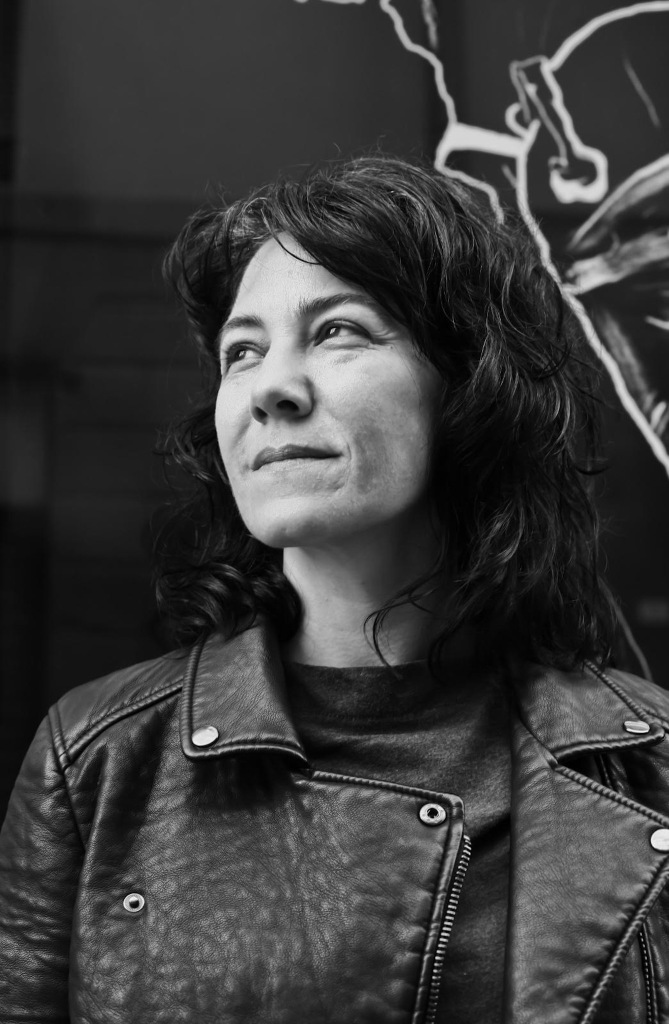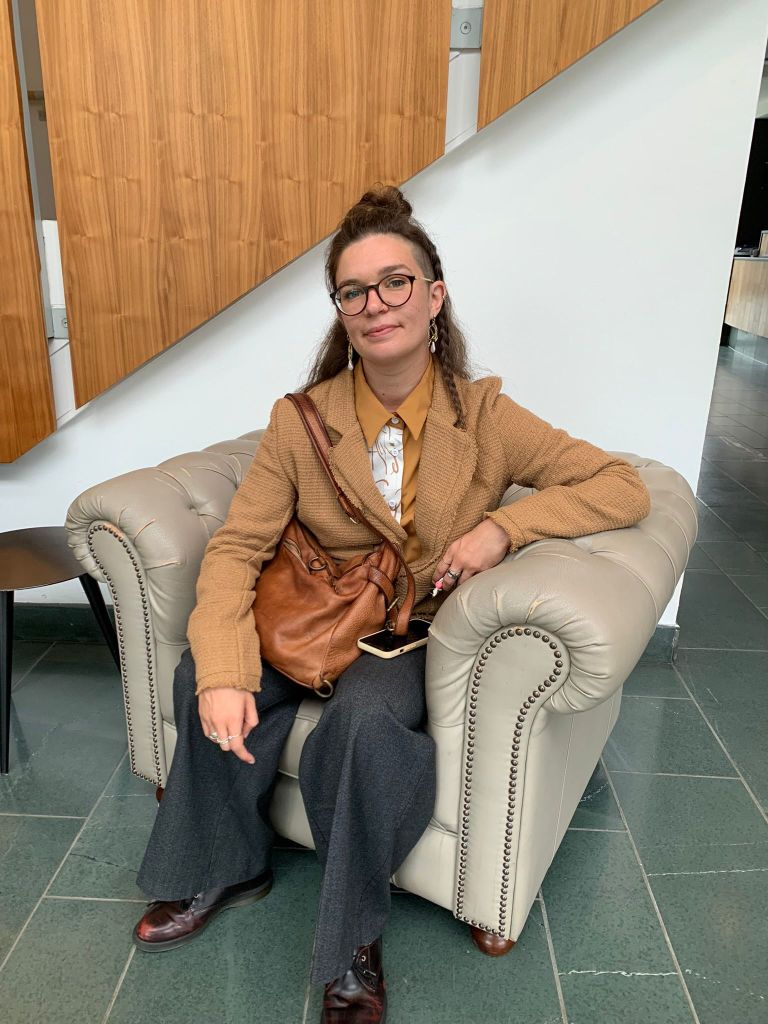Lead Organiser

Patricia Francis (she/her) is a Midlands3Cities-funded doctoral researcher at Nottingham Trent University in England. She is a filmmaker and Royal Television Society Award nominee.
In 2012 Patricia set up Syncopate Media, an independent production company. Many of her stories have been commissioned by the BBC and she has used the platform to highlight issues ranging from the UK government’s implementation of the Bedroom Tax, through to a rise in domestic abuse cases and the plight of child carers.
Patricia’s independent films include Many Rivers to Cross (2013) and Making Waves (2015). Her latest film The Art of Oppression (2021) was shortlisted in the Best Documentary category at the Midlands Movies Awards 2022, achieved quarter-finalist position at the Serbest Film Festival 2022 and won Best Film at the Windrush Caribbean Film Festival 2022.
Patricia’s current practice-based research explores women’s activism through the medium of documentary art film. It focusses on two groups of dissenting women in Nottinghamshire; the women involved in the miners’ strike in 1984, and the women involved in the Black Lives Matter movement during the 2016 Shutdown. She is exploring how to give volume and primacy to activist women’s voices through artistic practice where their voices have been undermined, unheard, or silenced.
Co-Organisers

Amir Kaur Aujla-Jones (she/her) has a BA (Hons) in History from the University of Sussex, a MA in Education from the University of Nottingham and a PhD in Sociology from Nottingham Trent University. Dr Aujla-Jones’s research has focused on race and gender equality using an intersectional lens. Her PhD thesis examined the lived experience of Black, Asian, and Mixed-race girls in predominantly white English secondary schools. Dr Aujla-Jones is part of Conscience Collective, an international network based in the UK aiming to extend understanding of climate and social justice.

Trang Dang (she/her) is a PhD researcher in literary studies at Nottingham Trent University, funded by NTU Studentship Scheme, and previously graduated from Oxford Brookes University with a BA and an MA in English Literature. Her PhD project focuses on Jeff VanderMeer’s weird fiction, exploring narratives of co-existence between humans and nonhumans and the role of new weird novels in portraying the current climate crisis. Her main research interests are contemporary literature, cli/sci-fi, critical theory, and continental philosophy. She has published on the topics of animal studies, American culture and politics, and the Anthropocene.

Valentina de Riso (she/her) is a Vice Chancellor’s Studentship PhD student at Nottingham Trent University. Her research focuses on contemporary writings by First Nations, Métis, and Inuit women who challenge and re-think models for testimony and Indigenous-settler relations in Canada. Her thesis examines motifs of mutual understanding, healing, forgiveness, and empathy which, when employed in national discourses of reconciliation risk naturalising, pathologising, or sensationalising Indigenous experiences of violence and trauma. They are re-imagined in Indigenous women’s productions. Valentina published her article ‘Spin the Tale Inside: Opacity and Respectful Distance in Lee Maracle’s Celia’s Song’ in the academic journal Studies in Canadian Literature (SCL) in 2021.

Brodhie Molloy (she/her) is a first-year Archaeology PhD researcher at the University of Leicester. Her research is funded by the AHRC M4C doctoral training partnership and explores Posthuman Feminist approaches to the dissemination of archaeological knowledge(s) and stories. Brodhie’s research focuses on the redressal of societal perceptions of those experiencing homelessness. The objective of her research is to theorise what it means to be human in relation to the concept of a fixed home, in turn deconstructing assumptions towards “homelessness”. She utilises Nomadic Theory and Storytelling as a methodology to critique the hegemonic voice within society.

Mahasen Nasser-Eldin (she/her) is a doctoral student at De Montfort University, pursuing practice-based research in film. She is funded by the Midlands4Cities, AHRC. She is a filmmaker and researcher whose films tell stories of resistance and resilience, crafting carefully researched and scripted narratives that restore new life to forgotten figures and celebrate those on the margins of society. Mahasen’s research focuses on the re/use of audio and visual archives in the writing of displaced women’s historical narratives through film. Her study is interdisciplinary and draws on different bodies of literature relating to archive practice, subaltern histories, transnational feminism and subjectivity. She holds an MA degree in filmmaking from Goldsmiths College in London and another MA in Arab Studies from Georgetown University in Washington, DC.
Mahasen’s films screened in international film festivals and her documentary films have been supported by the Arab Fund for Arts & Culture (AFAC); The Royal Jordanian Film Commission; and Creative Interruptions, UK Research and Innovation (UKRI). She was a resident at the Cite Internationale des Arts in Paris, France.
Her doctoral project interprets and creates representations of Palestinian women pre-1948 Palestine through film in resonance to present feminist struggles for liberation.

Viola Nassi (they/them) is a first-year PhD researcher at the University of Leicester. Their research is funded by the M4C doctoral training partnership. Viola’s research centres on American feminist literature written by women and gender non-conforming authors, contemporary bilingual literature, Chicana and Mexican literature. In their doctoral project, Viola is studying how contemporary Mexican and Chicana literature written in both English and Spanish on the historical figure of La Malinche can represent an instrument and framework through which we can assess gender-based violence in contemporary Mexico. As a key component of their multidisciplinary project, Viola is planning a collaborative workshop with a feminist Mexican collective in order to evaluate with them the relevance of the La Malinche figure within the context of gender-based violence in Mexico.

Ramisha Rafique (she/her) is a NTU PhD studentship funded PhD candidate at Nottingham Trent University. Her creative-critical doctoral thesis explores the ontology of the postcolonial flâneuse, focusing on reversing the role of the Western gaze on British Muslim women to a British Muslim woman’s gaze on Western societies. For the creative component of her doctoral thesis, Ramisha will produce a pamphlet length collection of travel poems and vignettes as the postcolonial flâneuse. Her research interests include Islamophobia, British Muslim women’s writing, and flânerie.